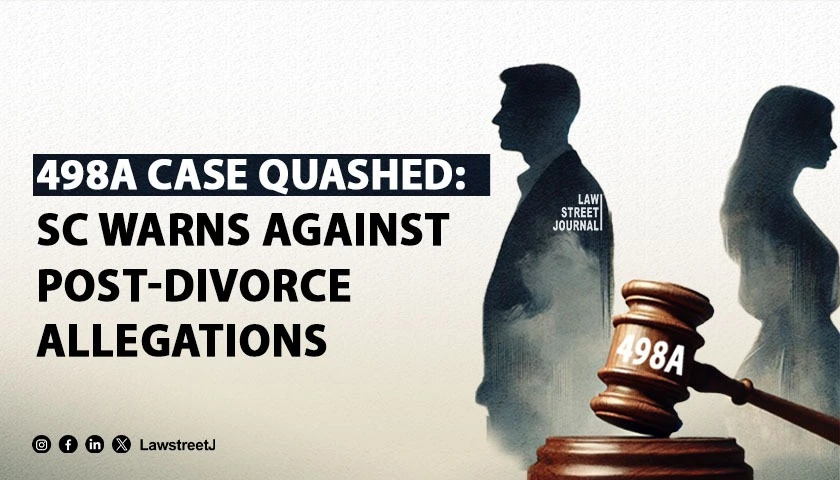New Delhi: The Supreme Court of India has delivered a significant judgment quashing criminal proceedings against the parents-in-law in a case filed under Section 498-A of the Indian Penal Code, while emphasizing that courts must exercise caution when dealing with allegations made after many years of marriage.
Justices Manoj Misra and Manmohan made crucial observations regarding the implementation of Section 482 of the Criminal Procedure Code in matrimonial disputes, particularly highlighting the need for careful scrutiny when allegations emerge following divorce proceedings.
The court addressed an appeal arising from a petition filed by the appellants seeking quashing of an FIR registered at Chandkheda Police Station, Ahmedabad City, and the subsequent criminal proceedings for offences under Sections 498-A and 114 of the Indian Penal Code.
Examining the specific case, the court observed: “The allegation of harassment of the complainant at the instance of the parents-in-law is limited to extending taunts and custody-related issues of minor children. However, there is no disclosure about the nature of those taunts.”
The court highlighted the timing of the complaint, stating: “The FIR was lodged on 20.07.2019, just three days after service of summons of the divorce proceedings initiated by the first appellant [husband].”
In a significant directive on how courts should approach such cases, the Supreme Court ruled: “In matters arising from matrimonial disputes, particularly where the allegations are levelled after many years of marriage and, that too, after one party initiates divorce proceedings against the other, the Court must be circumspect in taking the allegations at their face value.”
The Court emphasized judicial responsibility in such cases: “Rather, it must examine, where allegations of mala fides are there, whether those allegations have been levelled with an oblique purpose — more so while considering the prayer of the relatives of the husband.”
The Supreme Court criticized the High Court’s approach, noting it “adopted an extremely pedantic approach while dealing with the quashing petition of the appellants.”
The court allowed the appeal partly, quashing the proceedings against the parents-in-law (second and third appellants), while directing that proceedings against the husband should continue.
Advocates Mohd Parvez Dabas, Uzmi Jameel Husain, Nadeem Qureshi, and Syed Mehdi Imam (AOR) appeared for the appellants, while Advocates Prashant Bhagwati, Swati Ghildiyal (AOR), Siddhant Sharma (AOR), and Prafull Bhardwaj represented the respondents.
Case Title: Kamal & Ors. vs. State of Gujarat & Anr.











